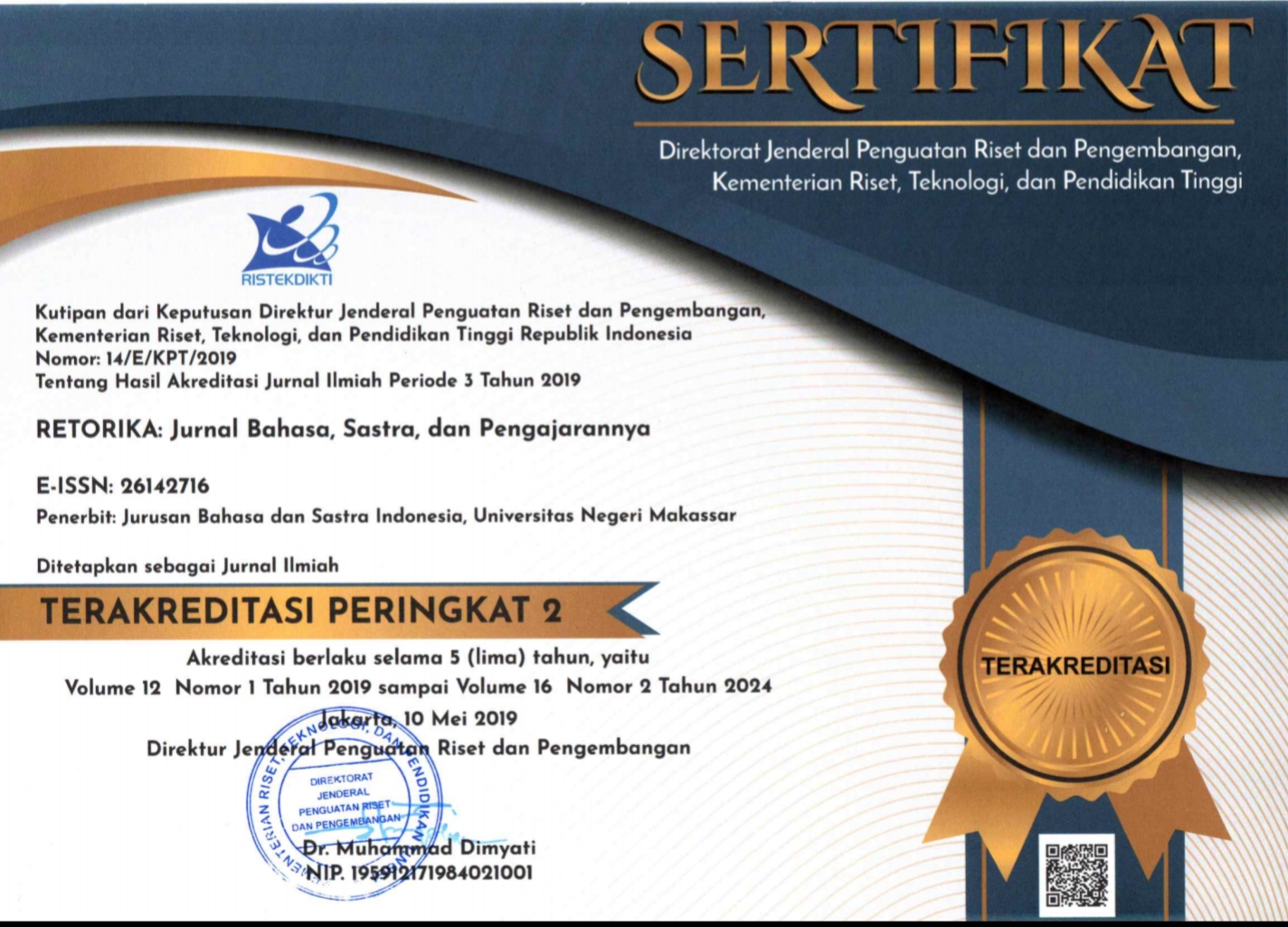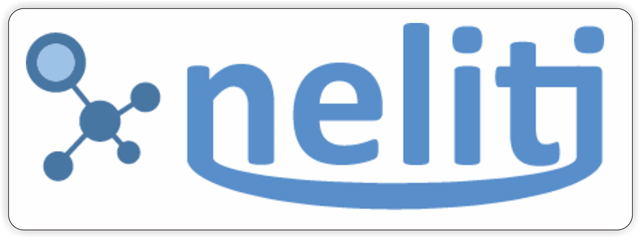Exploring Graduate Students' Practices of Writing for Scholarly Publication
(1) Universitas Sebelas Maret
(2) Universitas Sebelas Maret
(3) Universitas Sebelas Maret
(*) Corresponding Author
DOI: https://doi.org/10.26858/retorika.v15i1.16507
Abstract
The demand of writing for scholarly publication as a part of graduation requirements has now been apparent in many graduate programs. The present study attempted to discover the English Language Teaching (ELT) graduate students’ practices in writing for scholarly publication. This present study employed case study to further disclose the graduate students’ perceived discursive and non-discursive constraints as well as the way they learn how to write for scholarly publication. To collect the data, a synchronous interview session was conducted to two ELT master’s students from a state university in Central Java, Indonesia. Drawing on the theory of discourse community and legitimate peripheral participation, the participants challenges and learning process of learning process were scrutinized. It is expected that this study provides new insights for policy making in a postgraduate context and for the teaching of EAP to support writing for scholarly publication.
Keywords
Full Text:
PDFReferences
Beck, S., Mahdad, M., Beukel, K., & Poetz, M. (2019). The value of scientific knowledge dissemination for scientists — A value capture perspective. Publications, 7(3), 54.
Burgess, S., Gea-Valor, M. L., Moreno, A. I., & Rey-Rocha, J. (2014). Affordances and constraints on research publication: a comparative study of the language choices of Spanish historians and psychologists. Journal of English for Academic Purposes, 14, 72-83.
Chien, S. C. (2019). Writing for scholarly publication in English for Taiwanese researchers in the field of English teaching. SAGE Open, 9(3). https://doi.org/10.1177/2158244019870187.
Clarke, A. E. (2005). Situational analysis: Grounded theory after the postmodern turn. Thousand Oaks, CA: Sage.
Corcoran, J.N. (2015). English as the international language of science: A case study of Mexican Scientists' writing for publication. (Unpublished doctoral dissertation). University of Toronto, Canada.
Creswell, J.W. (2013). Qualitative inquiry and research design: Choosing among five approaches. Thousand Oaks, CA: Sage Publications, Ltd.
Darvin, R., & Norton, B. (2019). Collaborative writing, academic socialization, and the negotiation of identity. In P. Habibie & K.
Hyland (eds.). Novice writers and scholarly publication: Authors, mentors, gatekeepers (pp.177-194). Switzerland: Palgrave Macmillan.
Englander, K. & Corcoran, J. (2019). English for research publication purposes: Critical plurilingual pedagogies. New York, NY: Routledge.
Fazel, I. (2019). Writing for publication as a native speaker: The experiences of two Anglophone novice scholars. In P. Habibie & K.
Hyland (Eds.), Novice writers and scholarly publication: Authors, mentors, gatekeepers (pp. 79–96). London, England: Palgrave.
Flowerdew, J. (2013). Some thoughts on English for research publication purposes (ERPP) and related issues. Language Teaching, 48(2), 250-262.
Flowerdew, J. (2019). The linguistic disadvantage of scholars who write in English as an additional language: Myth or reality? Language Teaching, 52(2), 249-260.
Habibie, P. (2016). Writing for Scholarly Publication in a Canadian Higher Education Context: A Case Study. In Research Literacies and Writing Pedagogies for Masters and Doctoral Writers. Leiden, The Netherlands: Brill. doi: https://doi.org/10.1163/9789004304338_00
Ho, M. C. (2017). Navigating scholarly writing and international publishing: Individual agency of Taiwanese EAL doctoral students. Journal of English for Academic Purposes, 27, 1–13.
Hultgren, A. K. (2019). English as the language for academic publication: on equity, disadvantage and ‘Non-Nativeness’ as a red herring. Publications, 7(2), 31. https://doi.org/10.3390/publications7020031
Hyland, K. (2002). Options of identity in academic writing. ELT Journal, 56(4), 351–358.
Hyland, K. (2009). English for professional academic purposes: Writing for scholarly publication. In D. D. Belcher (Ed.), English for specific purposes in theory and practice (pp. 83-105). Ann Arbor, MI: University of Michigan Press.
Hyland, K. (2012). Disciplinary identities. Cambridge: Cambridge University Press.
Hyland, K. (2015). Academic publishing: Issues and challenges in the construction of knowledge. Oxford University Press.
Hyland, K. (2016). Academic publishing and the myth of linguistic injustice. Journal of Second Language Writing, 31, 58–69. https://doi.org/10.1016/j.jslw.2016.01.005
Hyland, K. (2019). Participation in publishing : The demoralizing discourse of disadvantage. In P. Habibie & K. Hyland (Eds.), Novice Writers and Scholarly Publication : Authors, Mentors, and Gatekeepers. London : Pallgrave Macmillan.
Jian, H. (2010). The schematic structure of literature review in research articles of applied linguistics. Chinese Journal of Applied Linguistics, 33 (5).
Kirk, D., & Kinchin, G. (2003). Situated learning as a theoretical framework for sport education. European Physical Education Review, 9(3), 221-235. https://doi.org/10.1177/1356336X030093002
Lave, J. & Wenger, E. (1991). Situated learning: Legitimate peripheral participation. New York, NY: Cambridge University Press.
Lei, J. (2019). Publishing during doctoral candidature from an activity theory perspective: The case of four Chinese nursing doctoral dtudents. TESOL Quarterly, 53(3), 655-684.
Lei, J., & Hu, G. (2019). Doctoral candidates’ dual role as student and expert scholarly writer: An activity theory perspective. English for Specific Purposes, 54, 62–74.
Lei, S.K. & Chuang, N.K. (2009). Research Collaboration and publication during graduate studies: Evaluating benefits and costs from students’ perspectives. College Student Journal, 43 (4), 1163-68.
Mu, C. (2020). Understanding Chinese Multilingual Scholars’ Experiences of Writing and Publishing in English. Cham, Switzerland: Palgrave Macmillan.
Nejad, A.M, Qaracholloo, M., & Rezaei, S. (2020). Iranian doctoral students’ shared experience of English-medium publication: the case of humanities and social sciences. Higher Education, 80, 255–271. https://doi.org/10.1007/s10734-019-00478-1.
Rezaei, S., & Seyri, H. (2019). Iranian doctoral students’ perceptions of publication in English: Motives, hurdles, and strategies. Journal of Applied Research in Higher Education, 11(4), 941–954. https://doi.org/10.1108/JARHE-02-2019-0040.
Silver, M. (2006). Language across disciplines. Towards a critical reading of contemporary academic discourse. Boca Raton: Brown Walker Press.
Swales, J. (1990). Genre analysis: English in academic and research settings. Cambridge, UK: Cambridge University Press.
Swales, J. (2004). Research genres: Explorations and applications. Cambridge: Cambridge University Press.
Uzuner, S. (2008). Multilingual scholars’ participation in core/global academic communities: A literature review. Journal of English for Academic Purposes, 7, 250–263.
Widodo, H.P. (2014). Methodological considerations in interview data transcription. International Journal of Innovation in ELT and Research, 3(1): 101–107.
Woodrow, L. (2019). Doing a Master's Dissertation in TESOL and Applied Linguistics. London : Routledge.
Yin, R. K., (2018). Case study research and applications: Design and methods (6th ed). Thousand Oak: Sage.
Article Metrics
Abstract view : 327 times | PDF view : 82 timesRefbacks
- There are currently no refbacks.
Copyright (c) 2022 Masyhudi Lathif, Joko Nurkamto, Diah Kristina

This work is licensed under a Creative Commons Attribution-NonCommercial 4.0 International License.
Published by:
Department of Indonesian Language, Faculty of Languages and Literature, Universitas Negeri Makassar in cooperate with Asosiasi Dosen Bahasa dan Sastra Indonesia (ADOBSI) and Ikatan Program Studi Pendidikan Bahasa dan Sastra Indonesia (IKAPROBSI).
Address: Department of Indonesian Language Office, DG Building Second Floor, UNM Parangtambung, Daeng Tata Raya Street, Makassar, South Sulawesi, Indonesia
 Email: retorika@unm.ac.id
Email: retorika@unm.ac.id

RETORIKA: Jurnal Bahasa, Sastra,dan Pengajarannya is licensed under a Creative Commons Attribution-NonCommercial 4.0 International License.
















